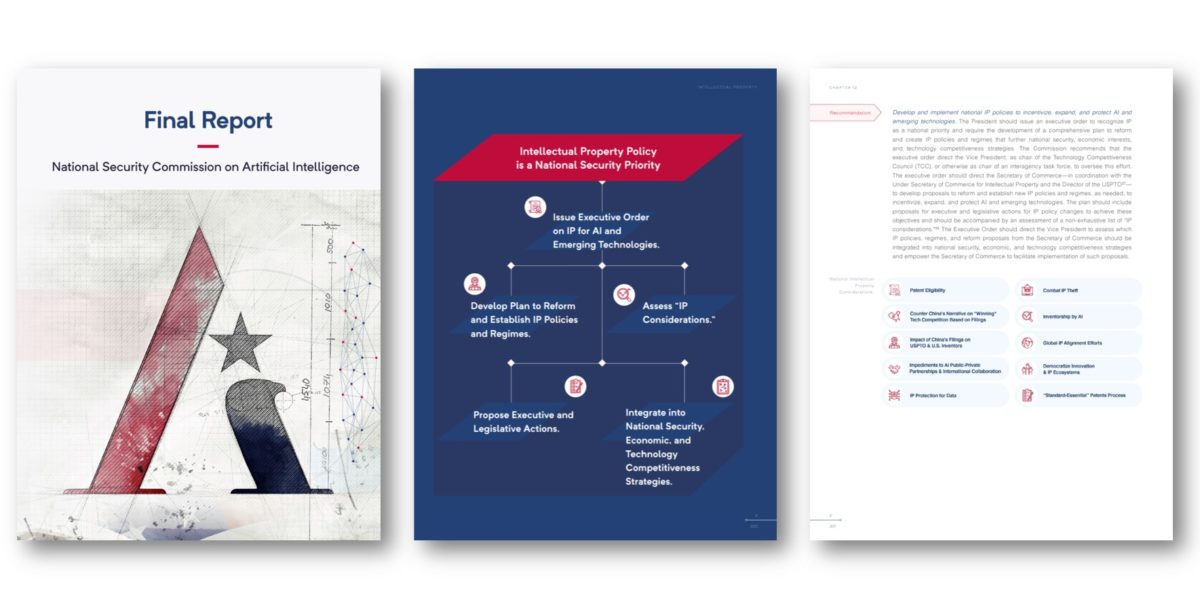The US National Security Commission on Artificial Intelligence has concluded that IP policy for AI is a US “national security priority” and has called for a review of patent eligibility for AI-related inventions and IP protection for data. An upcoming “Global Emerging Technology Summit” on 13 July may drive the agenda forward.
There has been growing interest in the protection of AI-related assets over the last five or so years. A number of authorities have published reports and held significant consultations, including the EPO’s Guidelines on Artificial Intelligence and Machine Learning, the European Commission’s report on AI-assisted creativity and invention, WIPO’s series of “Conversations” on Intellectual Property and Artificial Intelligence and the UK Government’s “Call for Views”.
So far, however, there has been little concrete change to IP law in this area. Notable cases have clarified the status quo. These include the DABUS cases, which have confirmed that inventions by AI are not patentable in the US, UK or before the EPO, and the EPO Enlarged Board of Appeal’s decision in G1/19, confirming the “Comvik” approach to the the inventiveness of computer-implemented simulations. (One exception is the EU’s Directive on Copyright in the Digital Single Market, which adopted and extended the UK’s exception to copyright infringement for “text and data mining”.)
A warning from the US National Security Commission on Artificial Intelligence that IP policy for AI is a “national security priority” might accelerate legislative change in the US and drive the timeline for change elsewhere. The Commission published its Final Report in March and IP practitioners should read Chapter 12 (on IP) and the related “Blueprints for Action”. Among the recommendations are consideration of expanding patent eligibility for AI-related inventions and IP protection of data. In the Commission’s view, the US Government should give companies alternatives to relying on trade secrets, which “do not contribute to accessible technical knowledge in the public domain” and which raise concerning “long-term effects on AI and other emerging technology developments and competitiveness”.
The National Security Commission on Artificial Intelligence has announced a “Global Emerging Technology Summit” on 13 July “to convene key democratic nations, international organization leaders, and private sector entities to define parameters for collaboration on global emerging technology issues”. Details are here.
About the author(s)
Gowling WLG is an international law firm operating across an array of different sectors and services. Our LoupedIn blog aims to give readers industry insight, technical knowledge and thoughtful observations on the legal landscape and beyond.

